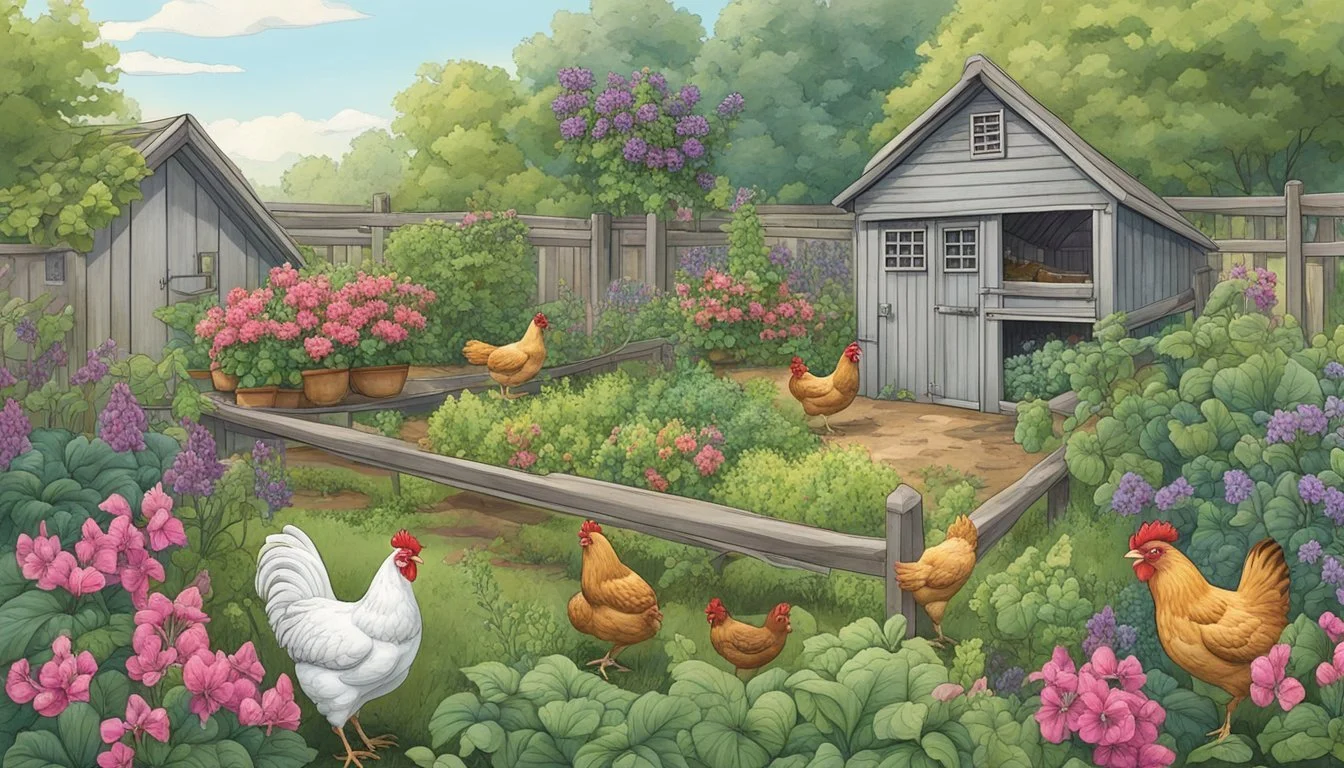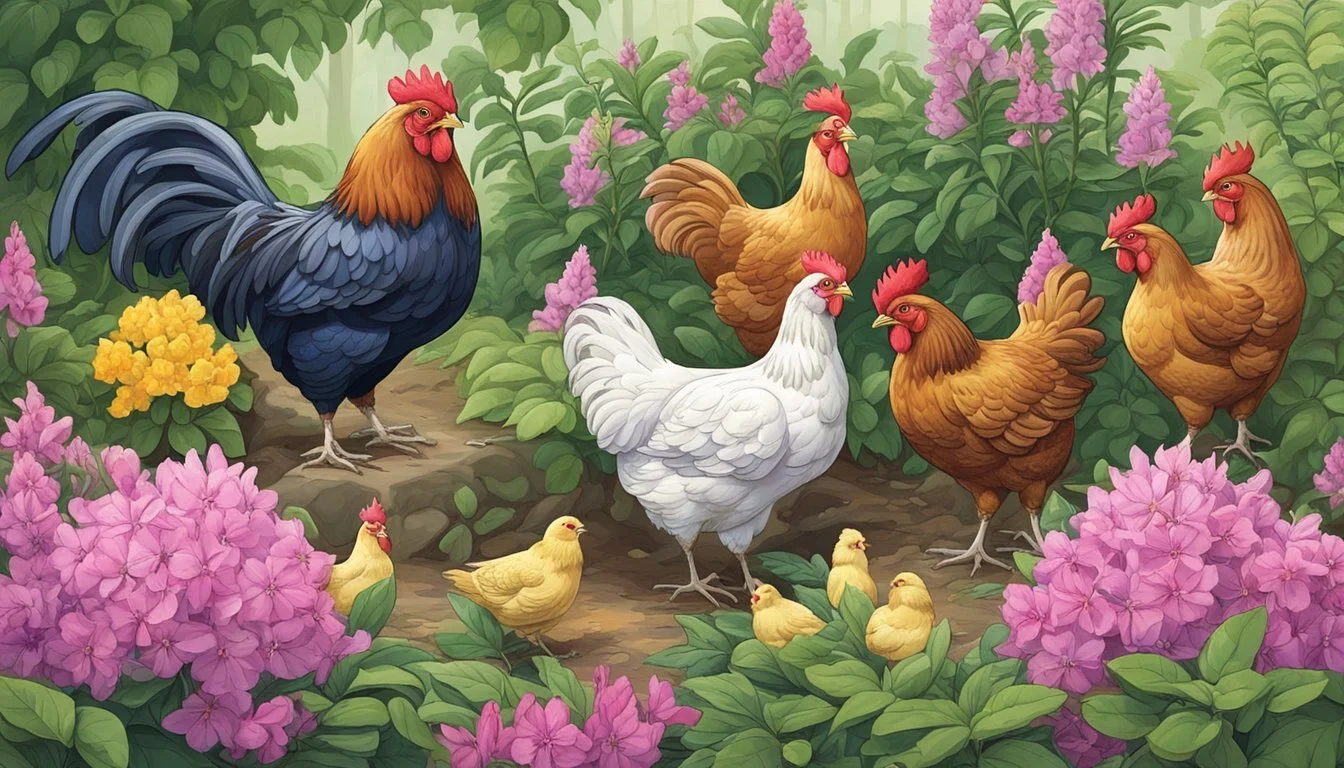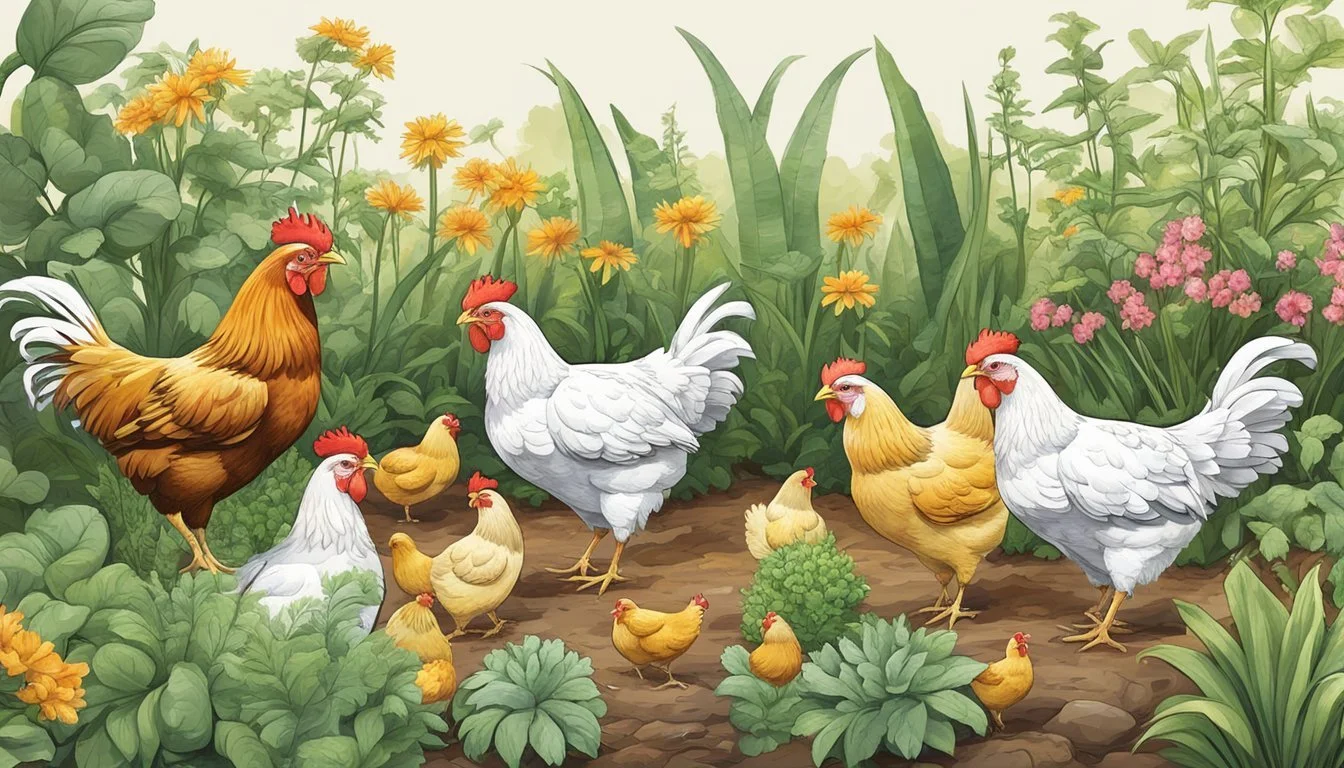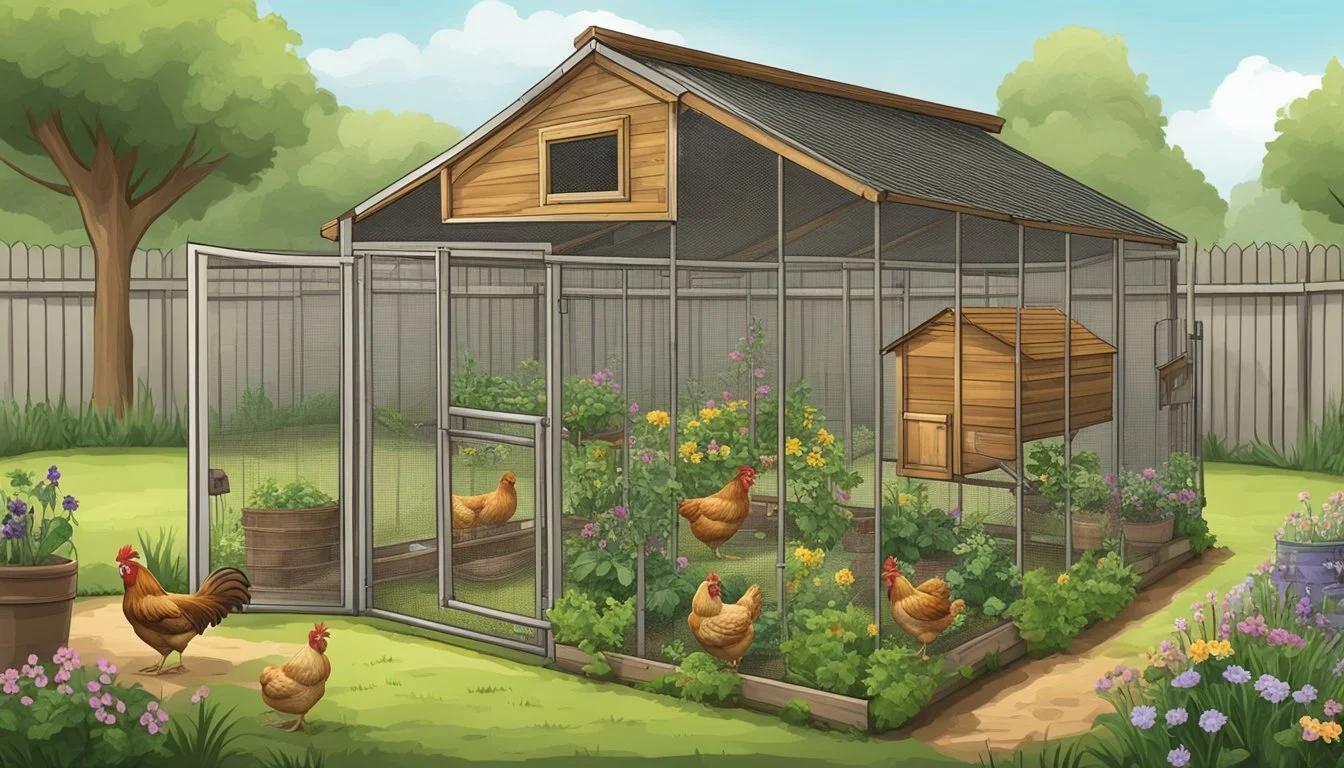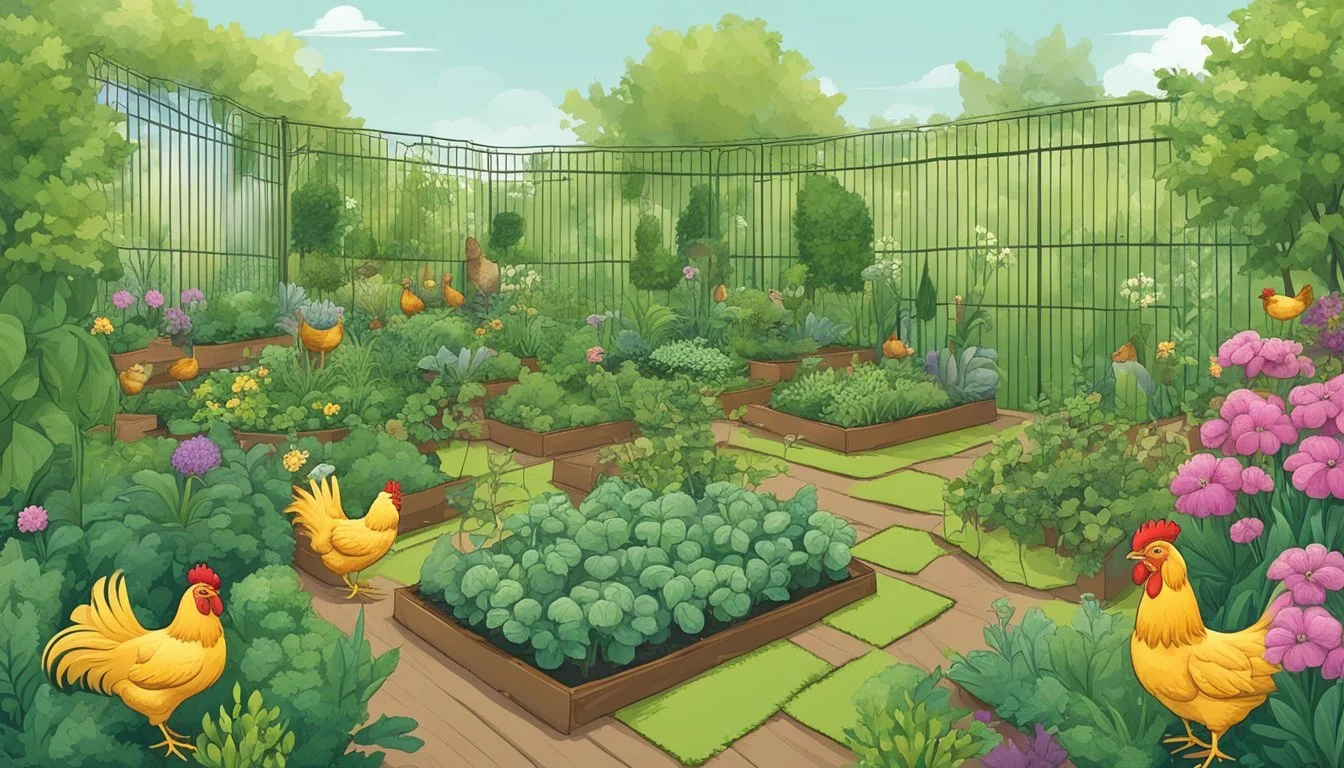What Plants Are Toxic to Chickens?
Identifying Common Garden Hazards
When raising chickens, ensuring the safety and health of the flock is paramount. Among the various factors to consider, the presence of toxic plants in the environment is often overlooked. Chickens are known to peck at vegetation as part of their natural foraging behavior. However, not all plants are safe, and some can be fatal if consumed. Identifying and understanding which garden plants pose a risk is crucial for backyard poultry keepers and farmers alike.
Gardens, while aesthetically pleasing and a source of food, can harbor a range of poisonous plants for chickens. To maintain a healthy flock, it is important to recognize these toxic species and prevent access to them. Some plants may cause immediate health issues, while others can have a cumulative effect leading to long-term health problems. With careful planning and knowledge, gardeners can cultivate a chicken-friendly space by avoiding or securely fencing off plants that are known to be harmful to poultry.
Common Toxic Plants and Their Effects
Certain plants can pose serious health risks to chickens, causing symptoms ranging from mild discomfort to severe medical conditions or even death.
Foxglove and azalea are beautiful flowers that are highly dangerous to chickens due to their cardiac glycosides and grayanotoxins, respectively. Ingestion of these plants can lead to heart issues, such as low blood pressure, slow heartbeat, and possibly shock.
Rhubarb contains oxalic acid and soluble oxalates, which can lead to kidney failure. Chickens consuming rhubarb may experience weakness and trouble breathing.
Nightshade species, often found in gardens, are very harmful. The variety includes potatoes and tomatoes' leaves and stems, containing solanine that causes gastrointestinal distress, diarrhea, and respiratory failure.
Daffodil bulbs are often mistaken for onions by foraging chickens, yet they contain lycorine. This toxin induces vomiting and can cause low blood pressure, seizures, and significant internal distress.
Yew, an evergreen shrub, is another lethal plant to chickens due to taxine alkaloids, which are rapidly acting toxins that can cause sudden death without much warning.
Plant: Foxglove
Toxin Involved: Cardiac glycosides
Symptoms: Low blood pressure, slow heartbeat, shock
Plant: Azalea
Toxin Involved: Grayanotoxins
Symptoms: Paralysis, weakness, death
Plant: Rhubarb
Toxin Involved: Oxalic acid
Symptoms: Kidney failure, trouble breathing
Plant: Nightshade
Toxin Involved: Solanine
Symptoms: Diarrhea, respiratory failure
Plant: Daffodil
Toxin Involved: Lycorine
Symptoms: Low blood pressure, seizures
Plant: Yew
Toxin Involved: Taxine alkaloids
Symptoms: Sudden death
Individuals who keep chickens should carefully manage their environments to prevent access to these and other toxic plants.
Specific Toxic Compounds in Plants
Numerous plants contain substances that are toxic to chickens. These compounds can vary widely in their effects, from causing mild distress to being potentially fatal. Understanding the specifics of these toxic compounds helps ensure the safety of backyard poultry.
Oxalates in Rhubarb Leaves and Their Impact
Rhubarb leaves contain oxalic acid, a compound that can lead to the formation of crystals in the urinary tract, causing kidney damage. In chickens, the ingestion of rhubarb leaves can result in weakness, difficulty in breathing, and even fatality due to their high oxalate content.
Cardiac Glycosides Found in Foxgloves
Foxgloves possess cardiac glycosides, powerful chemicals that can have a strong effect on heart function. Chickens exposed to these glycosides may experience heart arrhythmias and other serious cardiovascular issues, which could lead to a decrease in heart rate, ultimately causing death.
Solanine Toxicity from Nightshades
Members of the nightshade family, such as potatoes and tomatoes, contain solanine, a glycoalkaloid poison. This compound can cause gastrointestinal distress, lethargy, and central nervous system problems in chickens. It is important to note that the green parts of these plants are particularly high in solanine.
Cyanogenic Glycosides in Certain Seeds and Leaves
Certain seeds and leaves, for example, those from apricots and some types of berries, contain cyanogenic glycosides. Upon ingestion, these compounds can release cyanide in the body. Symptoms of cyanide poisoning in chickens may include respiratory distress and, if enough is consumed, death.
Garden Safety for Chickens
When considering the well-being of chickens, one must recognize the garden as a potential source of both nourishment and danger. To maintain a safe environment, it is essential to identify vegetables and herbs that can beneficially contribute to a chicken’s balanced diet, as well as those that may pose a risk.
Toxic Plants to Avoid:
Foxglove - Contains digitalis, harmful to the heart.
Daffodil - Bulbs are especially poisonous to chickens.
Tulip - Can cause serious health issues.
Rhododendron - Even a few leaves can be lethal.
Chicken-Safe Plants:
Chickens can safely consume a variety of garden plants, including:
Grass - Offers a good forage for chickens in moderation.
When incorporating these plants, ensure they have not been treated with pesticides or herbicides that could harm chickens.
Chickens often benefit from vegetable scraps as part of a balanced diet, but it's crucial to avoid giving them remnants from toxic plants.
Herbs can also play a dual role; some like rosemary and thyme can promote health and deter pests. However, you should carefully research each herb as some may be harmful.
A garden well-tended with chicken safety in mind provides an enriching environment for them to forage while also keeping them protected from hazardous plants. Always verify the safety of garden plant varieties and consult with a vet regarding an optimal diet for your flock.
Recognizing and Treating Poisoning Symptoms
When chickens ingest toxic plants, they may exhibit a variety of symptoms that require quick identification and intervention. Common signs of poisoning include:
Diarrhea: Frequent, watery stools may indicate plant toxicity.
Seizures: Convulsions or uncontrolled muscle movements are serious symptoms.
Lethargy: Listlessness or a lack of energy suggests distress.
Loss of Appetite: A sudden disinterest in food can be a warning sign.
Muscle Tremors: These may manifest as shaking or trembling.
If any of these symptoms are observed, it is critical to contact a veterinarian immediately for guidance. The severity of the symptoms could range from mild to life-threatening, with potential complications such as cardiac damage.
In terms of treatment, the vet may recommend the following:
Isolation: This prevents the chicken from ingesting more of the toxic plant and allows for easier monitoring.
Symptom management: This could involve medications to control seizures or tremors.
Supportive care: Fluids and nutritional support may be needed in cases of severe diarrhea or loss of appetite.
Early detection and veterinary care are key to managing poisoning and minimizing the risk of long-term health issues. Keep potentially harmful plants away from chicken coops and runs to prevent accidental ingestion.
Preventive Measures for Chicken Owners
Chicken owners must take diligent steps to safeguard their flocks from toxic plants, especially when chickens have access to gardens or areas where such vegetation might grow. The following measures can assist in preventing accidental ingestion of harmful flora:
Identify and Remove: Owners should familiarize themselves with common toxic plants for chickens such as hemlock, azaleas, and lilies. Regularly inspecting the chicken's environment and promptly removing these plants will greatly reduce the risk of poisoning.
Fence Off Gardens: Many owners cultivate gardens, unaware that common plants are harmful to poultry. By installing secure fencing around vegetable gardens, owners can allow chickens to roam freely without the risk of them nibbling on toxic vegetation.
Safe Plant Alternatives: Offering chicken-safe plants can divert chickens’ interest away from hazardous ones. Introducing plants like coleus and lemongrass, which are safe for chickens, ensures that chickens can still engage in their natural foraging behaviors.
Education and Quick Response: Owners should have knowledge of symptoms of plant poisoning and immediate actions to take, such as isolating affected chickens and seeking veterinary care promptly as outlined in emergency procedures on becsbackyard.com.
Through these preventive actions, chicken owners demonstrate responsible management, ensuring their flock's wellbeing while maintaining a vibrant and thriving garden ecosystem.
List of Plants to Avoid in Chicken-Friendly Gardens
When curating a garden around chickens, certain plants should be avoided due to their toxic properties. Below is a critical list for chicken owners to consider:
Castor bean (Ricinus communis): These contain the toxin ricin, which can be fatal to chickens.
Nightshades: This family includes plants like tomatoes, potatoes, and eggplants. Their leaves and stems can be harmful to poultry.
Ferns: Some varieties, especially the bracken fern, are toxic and can cause health issues in chickens.
Bracken Fern (Pteridium aquilinum): Known to cause vitamin B1 deficiency in chickens.
Corn Cockle (Agrostemma githago): Contains saponins and githagin, which are dangerous to chickens if consumed.
Delphinium: These beautiful flowers are also known as larkspur and contain alkaloids that are toxic to poultry.
Hemlock (Conium maculatum): All parts of this plant are highly poisonous to chickens.
Hydrangea: Contains cyanogenic glycosides, which can release cyanide when chewed by chickens.
Oleander (Nerium oleander): Every part of this shrub is toxic due to the presence of cardiac glycosides.
Tulip (Tulipa spp.): The bulb is known to be the most toxic part to chickens.
Foxgloves (Digitalis purpurea): These contain digitalis, which can impact a chicken's heart.
Lily (Lilium spp.): Some species of lilies can cause digestive upset in chickens.
It is essential for chicken owners to research and eliminate common toxic plants from the vicinity of their flocks to safeguard against accidental ingestion. Poultry should never be allowed access to these plants, and if ingestion occurs, seek veterinary care immediately.

